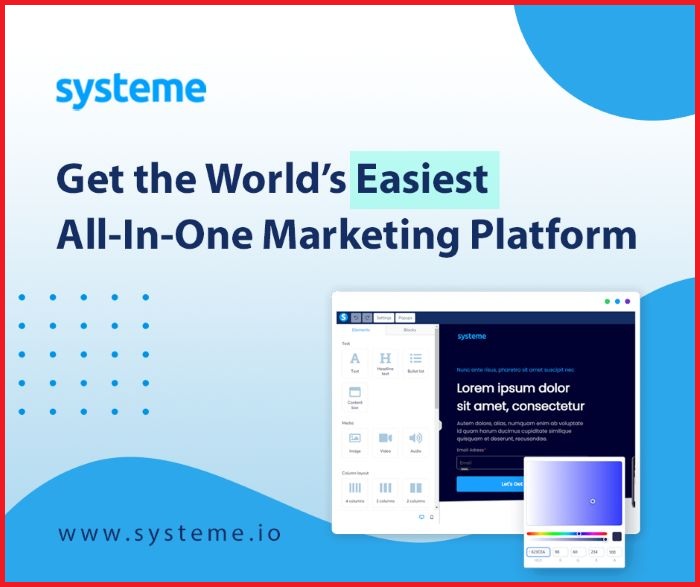In today’s digital era, SEO, or search engine optimization, is crucial for small businesses aiming to increase their online visibility. If you own a small business, understanding and implementing SEO strategies can significantly impact your ability to reach new customers and grow your online presence. While it may seem complex, SEO basics revolve around optimizing your website so search engines can easily understand and rank your content. This article examines small business SEO services that can help your online presence.

As a small business, developing a comprehensive SEO strategy tailored to your unique needs and resources is essential. Technical SEO ensures your website is structured correctly for search engines to crawl and index. On-page optimizations involve tweaking the content and meta tags to align with targeted keywords and search queries. Meanwhile, off-page SEO refers to activities outside your website, such as building backlinks from reputable sources, to bolster your website’s authority and credibility.
Key Takeaways
- SEO is vital for small businesses to improve online visibility and attract customers.
- A strategic blend of technical, on-page, and off-page SEO is critical to effective optimization.
- A targeted approach yields long-term growth and enhances a small business’s digital footprint.
Understanding the Basics of SEO
To bolster your small business’s online presence, grasping the basics of SEO is crucial. It’s a reliable way to increase your website’s visibility and draw in more organic traffic without direct advertising.
Significance of SEO for Small Businesses
SEO, or Search Engine Optimization, is vital for your small business as it levels the playing field against larger competitors. By optimizing your site, you enhance its visibility in search engine results, attracting more potential customers. Remember, it’s not just about being online but being found quickly.
SEO and Organic Traffic Fundamentals
Organic traffic is the stream of visitors that lands on your website as a result of unpaid search results. The fundamentals of SEO revolve around keywords and content relevance, painstakingly crafted to align with what your audience is searching for. This organic approach to generating traffic is cost-effective and can yield sustainable long-term results.
How Search Engines Work
Understanding how search engines work can be complex, but here’s what you need to know: Search engines like Google use algorithms to crawl, index, and rank your website based on relevance and authority. These rankings determine how high up your site appears in search results when potential customers are looking for products or services your small business offers. A well-optimized structure and high-quality content are vital to rising through the ranks.
Developing a Comprehensive SEO Strategy
When you’re ready to take your small business to the next level, a carefully crafted SEO strategy can make a real difference. It’s about understanding the landscape, setting thoughtful goals, and carving a path that sets you apart from the competition.
Keyword Research and Analysis
Your SEO journey begins with keyword research and analysis. Start by listing relevant terms that reflect your products and services. Tools like Google’s Keyword Planner can help you find the keywords your potential customers are searching for. Analyze the search volume and competition level for each keyword. This step ensures that the effort you put into SEO will yield a return on investment (ROI) by attracting more targeted traffic to your website.
- High-Volume Keywords: Consider these your ‘big fish’ keywords. They have the potential to drive significant traffic but often come with stiffer competition.
- Long-Tail Keywords: More specific and often less competitive, these can lead to higher conversion rates as they align closely with user intent.
Competitor Research and Analysis
Understanding who your competitors are and what they’re doing is crucial. Perform a thorough competitor research and analysis to identify the strengths and weaknesses in their SEO strategies. Tools such as SEMrush provide insights into the keywords they rank for, the quality of their content, and their backlink profile. Use this information to find gaps in their strategies that you can exploit for your growth.
- Competitor’s Top Keywords: Identify these and ask yourself how to create better content or a superior user experience.
- Backlink Profiles: Analyze these to uncover potential opportunities for your link-building efforts.
Customizing SEO Goals for Growth
Finally, tailor your SEO goals to support sustainable growth. With the data gathered from your research, set clear, measurable objectives that align with your business’s overall targets. Whether it’s increasing organic traffic, boosting sales, or enhancing brand awareness, your SEO strategy should be a strategic investment that supports your broader business goals. Remember that SEO is not a one-time task—it’s an ongoing process that requires regular attention and adjustment to see continuous ROI.
- SMART Goals: Ensure your SEO goals are Specific, Measurable, Achievable, Relevant, and Time-bound.
- Monitor Your Progress: Regularly review your analytics to understand the impact of your efforts and refine your strategy as needed.
Technical SEO for Small Business Websites
Technical SEO is crucial for your small business website’s performance and visibility. It ensures that the technical elements of your web architecture are configured to maximize search engine discovery, crawling, and indexing.
Site Structure and Navigation
Your website’s structure and navigation are vital components of technical SEO. A well-organized site with clear hierarchies and intuitive navigation helps search engines understand your content and improves user experience. Use breadcrumbs and a consistent menu to help users and search engines quickly find information on your site.
Mobile-First Approach and Tech Optimizations
A mobile-first approach is no longer optional. With Google’s mobile-first indexing, your site must be responsive and load quickly on mobile devices to rank well. Compress images, leverage browser caching, and minimize JavaScript and CSS for faster page loading.
Importance of XML Sitemaps and Health Checks
An XML sitemap is your website’s roadmap for search engines, listing all necessary pages. Ensure you submit a current XML sitemap to search engines for thorough site indexing. Regular health checks and technical SEO analysis help identify issues like broken links or server errors that could impact your site’s performance. Use tools like Google Search Console for monitoring and continuous optimization.
On-Page SEO: Content and Optimizations
In the journey to enhance your website’s performance, mastering on-page SEO is critical. It’s about ensuring that your content and the technical elements supporting it are fully optimized for search engines.
Content Marketing Strategies
Content is the cornerstone of your site. You want to create quality, valuable content tailored for your audience. Start by identifying the most relevant topics within your industry and focus on creating detailed, informative pieces. Remember to use keywords naturally—a practice known as SEO content writing. This involves integrating targeted search terms that fit logically within your content, which helps your website rank better in search engine results pages (SERPs).
Internal Linking Tactics
Internal linking is a strategic maneuver that boosts user navigation and search engines’ indexing of your pages. Add links in your content that lead to other valuable pages within your site. This encourages visitors to stay longer and interact with more of your content, which signals to search engines the high value of your website. Ensure your internal links use relevant anchor text, as this helps increase the relevance of the linked pages for particular queries.
Metadata and On-Page Elements
Optimizing metadata means crafting compelling title tags and meta descriptions that catch the eye in SERPs. Each title should be under 60 characters to ensure complete visibility, and every meta description should summarize the page’s content, enticing users to click through. Beyond metadata, use header tags to structure your content logically and alt text to describe images, improving accessibility and on-page SEO. A well-structured page with explicit metadata communicates its topic and value to users and search engines, bolstering your site’s chances of ranking well.
Off-Page SEO for Enhancing Visibility
Off-page SEO is essential to boost your small business’s online presence. Leveraging various strategies outside your main website can significantly enhance your site’s visibility in search engine results.
Building Quality Backlinks
Backlinks, or links from other sites to yours, are a cornerstone of off-page SEO. Quality links from reputable websites signal to search engines that your site is a credible source of information or services. You can foster these valuable connections by:
- Engaging in guest blogging on respected industry sites
- Collaborating with influencers who can feature your content
- Participating in relevant forums and discussions to provide expertise and contextually appropriate links back to your site
Remember, it’s not just the number of backlinks you have but the quality and relevance of those links that matter.
Social Media Integration
Social media platforms can amplify your brand’s reach and help cultivate a community around your products or services. Utilize platforms like Facebook, Twitter, and LinkedIn to:
- Share engaging content that adds value and entices users to visit your website
- Interact with followers to foster trust and encourage sharing of your content
- Harness user-generated content, such as customer reviews or testimonials, to enhance credibility
Integrating social media into your off-page SEO strategy can drive more traffic to your website and improve your brand’s overall visibility.
Local SEO and Directory Listings
For small businesses, local SEO is crucial. Ensure you are listed in online directories and maintain an up-to-date Google My Business profile, which helps:
- Improve your local search visibility, especially for users seeking nearby solutions
- Collect and showcase customer reviews, which can improve trust and influence purchase decisions
- Share important details like location, hours, and services, making it easier for customers to find and choose you
Being active in local SEO and maintaining accurate directory listings is a signal to both search engines and potential customers that your business is prominent and reliable in your local area.
Maximizing Online Presence Through Digital Marketing
To effectively enhance your small business’s visibility, it’s crucial to employ a multifaceted approach to digital marketing, intertwining SEO, PPC, social media, and email campaigns. These tools work together to build a robust online presence and drive targeted traffic to your website.
SEO and PPC Synergies
You improve your chances of dominating search results by harmonizing SEO (Search Engine Optimization) and PPC (Pay-Per-Click) advertising. Use SEO to optimize your website with relevant keywords, quality content, and a user-friendly design. Then, amplify reach with PPC ads to appear at the top for the exact keywords, instantly increasing visibility. Combining these organic and paid strategies can lead to a compound effect on your online presence.
Leveraging Social Media Marketing
Social media marketing is indispensable in your digital strategy. Each platform offers unique advantages to connect with your audience. Facebook excels in detailed targeting, Instagram showcases products through visual content, and LinkedIn is ideal for B2B networking. By creating engaging content tailored to platform-specific audiences, you will likely see an impressive boost in your marketing efforts.
Email Campaigns and Targeted Traffic
Email campaigns remain a powerful tool to garner targeted traffic. By segmenting your audience and crafting personalized messages, you provide value directly to their inboxes. Regular, quality email content keeps your business top-of-mind and can drive repeated website visits from interested consumers, contributing significantly to your digital marketing objectives.
Leveraging SEO Tools and Analytics
To effectively enhance your online presence, you need to harness a blend of SEO tools and analytics. They provide the data and insights necessary to understand your website’s traffic and fine-tune your SEO strategies.
Using Google Analytics for SEO Insights
Google Analytics is a cornerstone tool that should be part of your SEO arsenal. It allows you to track your website’s traffic, understand where your visitors are coming from, and see which content performs best. Here’s how you can use it:
- Audience Overview: This section gives you a snapshot of user engagement. Monitor metrics like sessions, users, and pageviews to gauge overall site activity.
- Acquisition Reports: See which channels (organic search, social media, referrals) are driving traffic. This will show you where to focus your SEO efforts.
- Behavior Reports: Find out which pages keep users interested and identify areas where your site may be underperforming.
Practical SEO Tools for Small Businesses
In addition to Google Analytics, other SEO tools can provide valuable assistance:
- Keyword Research Tools: Semrush provides insights into the right keywords to target for your niche.
- Site Audit Tools: Platforms such as Seobility can help you identify technical issues that may hold back your site’s performance.
Incorporating these tools into your SEO strategy can lead to more informed decisions and improved results for your business.
Creating a Memorable Brand Through SEO
SEO isn’t just about getting to the top of search rankings; it’s a powerful tool to build your brand’s identity and make it memorable. Your small business can increase brand awareness and foster trust with the right strategies, ensuring you’re seen and remembered.
Content Creation for Brand Awareness
Crafting high-quality blog posts enhances your brand’s visibility and authority. Blog posts with valuable insights position your brand as an industry thought leader. Consider emphasizing topics that resonate with your audience’s interests and align with your brand’s values.
Video Marketing and Visual Content
Engaging videos go viral and spread your brand’s message. You can capture attention and drive interaction by integrating video marketing into your SEO efforts. YouTube is the second-largest search engine, and optimizing your visual content there bolsters brand recall.
Building Trust with Public Relations
Public relations play a crucial role in optimizing your brand’s perception. Create press releases for significant events or partnerships highlighting your brand’s contributions and achievements. When reputable sources feature your business, it boosts credibility and fosters trust with your audience.
Measuring SEO Success and ROI
When venturing into SEO for your small business, understanding the return on investment (ROI) can be the difference between a thriving venture and a stagnant one. Let’s focus on how you can measure your SEO success, from tracking rankings to sales conversions, analyzing campaign performance, and learning from real-world case studies.
Tracking Rankings and Sales Conversion
Rankings are a straightforward indicator of SEO success. Monitor your website’s position on search engine results pages for targeted keywords over time. A rise in rankings often correlates with increased organic traffic, leading to more sales opportunities. To effectively track your sales conversion, you can set up goals in Google Analytics or similar tools, looking specifically at how many visitors from organic search are turning into customers.
Analyzing SEO Campaign Performance
Your SEO campaign is more than just rankings; it’s about understanding the health and efficacy of your efforts. Tools like Ahrefs can help you examine the value brought by your SEO activities compared to their cost. Evaluate metrics such as click-through rates, website traffic, and user engagement to gauge performance. In your analysis, always tie these metrics back to actual ROI—calculating the profit from the SEO investment.
Case Studies and Testimonials
Case studies and testimonials bring your SEO strategy to life, offering concrete examples of success. They serve as social proof, showcasing how similar businesses have improved their rankings, traffic, and sales through SEO. Explore case studies that align with your business model and size to understand potential ROI better and set realistic expectations for your campaigns.
Choosing the Right SEO Agency for Your Business
Selecting the perfect SEO agency is crucial when you’re ready to elevate your online presence. Consider whether a full-service or niche agency meets your needs, verify transparent pricing structures, and scrutinize past performance through portfolios and reviews.
Full-Service Vs. Specialized SEO Services
Full-Service SEO: A comprehensive approach, suitable if you’re looking for an all-inclusive digital marketing strategy. Agencies like WebFX provide a complete suite of services, from content marketing to analytics.
Specialized SEO Services: Ideal for those with specific needs. For instance, if your focus is purely on e-commerce or legal industries, an agency specializing in these sectors can offer tailored expertise.
Transparent Pricing and Custom Services
- Transparent Pricing: Always choose agencies that provide clear, upfront pricing to avoid surprises. WebFX is known for starting its plans at explicit monthly rates.
- Custom Services: Look for agencies like HigherVisibility that cater to the individual needs of your business, scaling services to align with your goals.
Assessing Agency Portfolio and Client Reviews
Portfolio: A reputable SEO agency, such as SmartSites, will showcase a portfolio containing its successes. Review these to ensure their capabilities align with your business objectives.
Client Reviews: Authentic reviews are vital. They provide insights into the reliability and effectiveness of the agency’s services. When reading testimonials, pay close attention to other small businesses’ experiences with affordable SEO services.
Frequently Asked Questions about small business SEO services:
Navigating the SEO world can be complex, but finding the proper support can transform your small business’s online presence. Here, we address crucial questions to help you make informed decisions regarding SEO services.
How can I find a reputable SEO agency for my small business?
Start by researching agencies with a strong track record in SEO and focus on those that demonstrate transparency, case studies, and client testimonials. Networking and seeking referrals from other small business owners can also lead you to reputable providers.
What are some affordable SEO strategies for a burgeoning small enterprise?
Focus on keyword research to target relevant search terms, optimize your website’s content, and build quality backlinks. Leveraging local SEO tactics, such as Google My Business listings, can also be cost-effective.
How much should a small business typically budget for SEO services?
SEO investment varies; however, as a small business, you can expect to budget anywhere from a few hundred to a few thousand dollars per month, depending on the scope and complexity of the services rendered.
What are the signs that an SEO company is trustworthy and compelling?
What should I expect from an SEO service provider as a small business owner?
Expect a detailed website analysis, an SEO strategy tailored to your business goals, and regular updates on the progress. An SEO service provider should aim to improve your site’s visibility and traffic over time.
How can I measure the success of SEO in my small business?
Measure success by tracking increases in organic traffic, search rankings for targeted keywords, and conversions. Regular SEO reports should highlight these metrics, giving you insights into the effectiveness of your SEO strategies.





